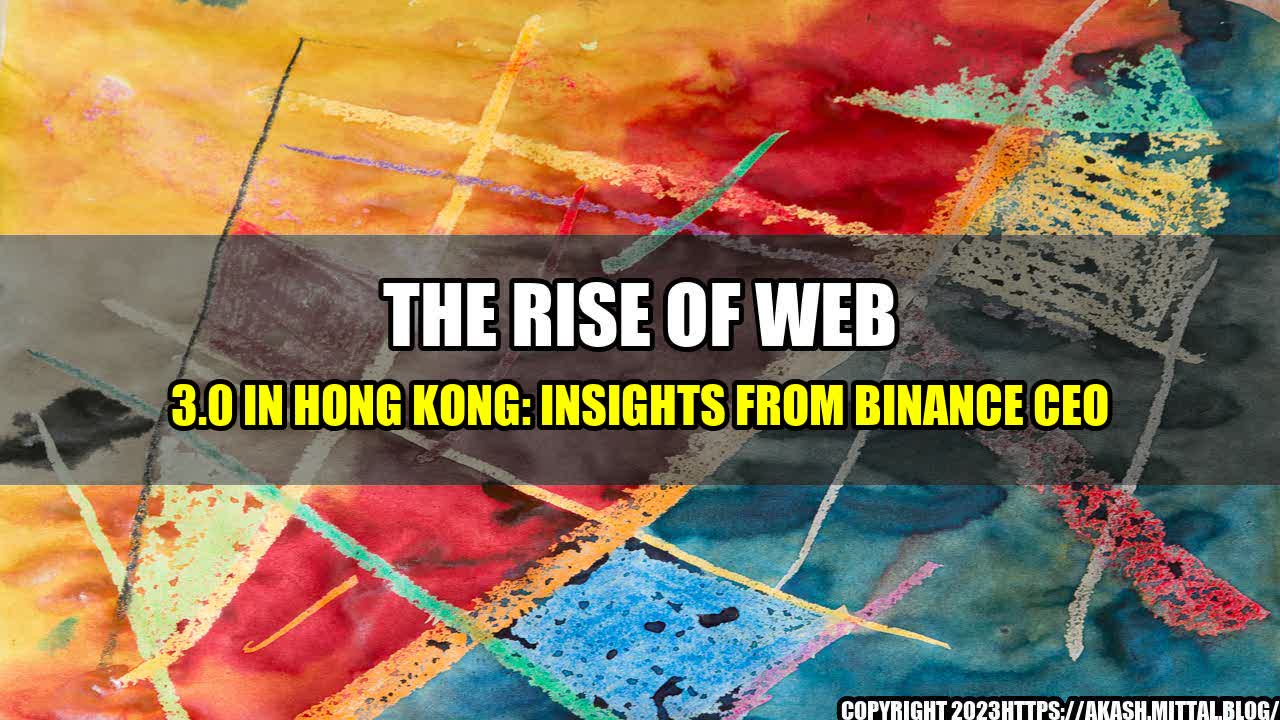
It was the year 2019, and Hong Kong was in the midst of heated protests. On one side were the pro-democracy activists fighting for their rights, while on the other were the pro-government supporters advocating unity and stability. Amidst the chaos, there was a group of young entrepreneurs who saw an opportunity to bring the power of blockchain to the masses. They formed the Hong Kong Blockchain Society in hopes of building a more transparent, decentralized and fairer society.
Their efforts did not go unnoticed. In November 2019, the Hong Kong government released a white paper outlining their plans for the development of Web 3.0. This was a significant milestone for the blockchain community, as it showed the government's recognition of the potential that blockchain technology could bring to the society.
Web 3.0, also known as the decentralized internet, is the next stage of the internet's evolution. It aims to bring back control to the users by decentralizing data and giving them ownership of their digital identities. This means that users will no longer have to rely on centralized entities such as Facebook or Google to manage their data.
With Web 3.0, users will have the ability to control their data without being subjected to third-party interference. Blockchain technology will play a critical role in this transition by providing the necessary infrastructure for decentralized applications (dApps) to operate securely and transparently.
Hong Kong has long been recognized as a hub for finance and technology. With its strategic location and world-class infrastructure, it has become an attractive destination for blockchain startups. The Hong Kong government recognizes the potential of blockchain technology and has been actively promoting its development. In 2019, the government allocated HKD 10 billion for research and development in emerging technologies, including blockchain.
Moreover, Hong Kong has a vibrant start-up ecosystem, with a large number of blockchain-based companies emerging in recent years. These companies are addressing various challenges such as supply chain management, digital identity, and payments.
Changpeng Zhao, CEO of Binance, recently expressed his views on China's Web 3.0 White Paper. According to him, the white paper is an essential step in the right direction and highlights China's commitment to blockchain technology. He believes that this move will pave the way for other countries to recognize the potential of blockchain technology and adopt a similar approach. Furthermore, he believes that Web 3.0 will be the driving force behind innovation and economic growth in the future. He cites examples of how blockchain-based companies are disrupting industries such as finance, logistics, and healthcare and creating new markets that were previously unexplored.
The future of Web 3.0 in Hong Kong looks promising. With the government's support and a vibrant start-up ecosystem, Hong Kong is well-positioned to lead the way in promoting the adoption of blockchain technology. The benefits of Web 3.0 such as transparency, decentralization, and privacy will appeal to a wide range of industries, including banking, healthcare, and logistics.
In summary, there are several reasons why Web 3.0 is gaining traction in Hong Kong. The government's recognition of blockchain technology's potential, the vibrant start-up ecosystem, and the benefits that Web 3.0 offers are all contributing factors. As the industry continues to mature, we can expect to see more adoption of blockchain technology and the rise of an even more decentralized and transparent society.
Blockchain & Cryptocurrency, Technology, Business
Curated by Team Akash.Mittal.Blog
Share on Twitter Share on LinkedIn